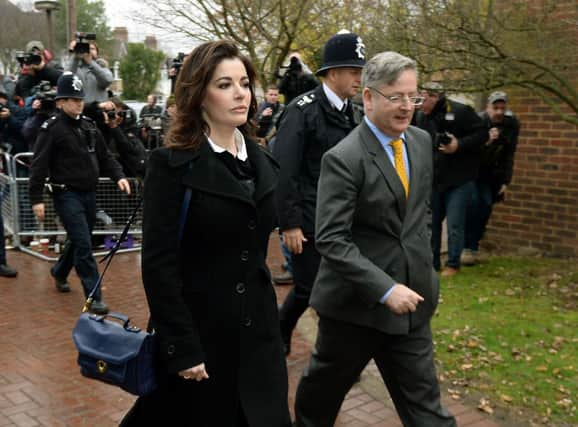Leaders: Mark Carney meeting | Nigella trial


Or it might not. It all depends on how much of the content of the discussions Mr Carney is willing to disclose afterwards.
The central issue is, of course, Mr Salmond’s desire that an independent Scotland, should he win next September’s referendum, should carry on using the pound sterling as its currency. So far, Scottish voters, save for an intervention unfavourable to Mr Salmond’s plan from a former deputy governor, Brian Quinn, have heard only political opinions on the topic.
Advertisement
Hide AdAdvertisement
Hide AdNot surprisingly, Mr Salmond says that his plan is very likely to happen because it will be in the interests of the rest of the UK for it to work. Equally predictably, those on the either side of the debate say that it won’t work. So it would be good to hear from an expert who is in neither camp but who is acutely concerned with the daily management of sterling, both in the short-term in the international markets, and in the long-term interests of national stability and prosperity.
Mr Carney is extremely well-qualified to talk about this because of his previous career with the Bank of Canada. The Canadian central bank has watched two referendums by Quebec on independence from Canada. In the second, in 1995, the pro-independence Parti Quebecois also favoured Quebec continuing to use the Canadian dollar.
It is inconceivable that the Bank of Canada did not consider what needed to be done in order to make this work or, indeed, whether such an arrangement was so problematic as to be unworkable. The parallels are not exact – Quebec is a much larger part of the Canadian economy than Scotland is of the British economy. But the principles which may have been worked out then should still hold good now.
The problem with the Scottish debate is that the two sides are log-jammed in discussing different aspects of the argument – Mr Salmond talking about trade benefits and the No campaign raising prudential risks in fiscal and debt management, and in bank supervision.
If they meet, it is in agreement that there needs to be some bilateral agreement securing fiscal, debt, and banking prudence. But then they part, disagreeing about the strictness of such arrangements and the freedoms within any probable deal. This is where Mr Carney can shed some light. His evidence to the House of Lords this week indicates he has been thinking about the issue. It will be disappointing if he emerges from the meeting saying merely it was an information-gathering exercise. The public interest will be much better served if he can advise voters on what are the real substantive issues in the currency question. Otherwise, unreliable politicians will be their only guide.
Nigella trial leaves bitter taste
IF NIGELLA Lawson is cooking Christmas dinner this year, she might be forgiven if she uses a lot of bitter ingredients. In a criminal case in which she was initially cast as the victim of a serious fraud, she has been labelled by the jury’s verdict as a false accuser and with her reputation so trashed by the evidence that she may never be able to work again as a TV chef.
All of the participants in this case came out with rather less credit than when it began. Her former husband, Charles Saatchi, was portrayed as a nasty type to be avoided, while the two women who worked for them, sisters Francesca and Elisabetta Grillo, may have been declared innocent of any crime but look somewhat less likely to be employed again by anyone else in the roles they had in the household.
But surely few, if they imagine a circumstance in which they might be the victims of a crime, could foresee that should they seek justice, would end up with their private life so ruthlessly exposed to the humiliating degree as has happened to Ms Lawson.
Advertisement
Hide AdAdvertisement
Hide AdThe dreadful legal truth is that where a case hinges on the competing credibility of accused and accuser, then such dredging for personal secrets will happen. In this case, it seems probable that the jury decided Ms Lawson’s hitherto unsuspected drug use rendered her incredible.
She is clearly the loser. But she said she would rather be “honest and ashamed” than not be open. She has made the very telling point that she felt that as a witness she was never allowed to rebut the allegations against her. She did her civic duty and suffered hugely, in a way that must surely put other people off doing anything similar. That makes justice the loser too.